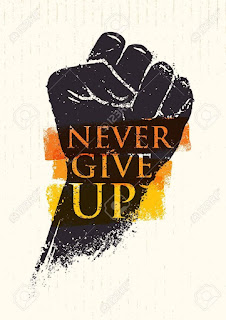Eid al-Adha
Eid al-Adha is an Islamic festival that commemorates the willingness of Prophet Ibrahim to sacrifice his son in obedience to God's command. It is also known as the "Feast of Sacrifice" and is celebrated by Muslims around the world². The festival begins on the 10th day of the Islamic lunar month of Dhul-Hijja and lasts for three days². During this time, Muslims slaughter livestock and distribute part of the meat to the poor². The day is also sometimes called the Greater Eid².
This year, Eid al-Adha began on Wednesday, June 28th and ends on Saturday, July 1st¹.
History has been eid al-Adhad
.Eid al-Adha commemorates the story of Prophet Ibrahim (Abraham) and his son Ismail (Ishmael). According to the Quran, God asked Ibrahim in a dream to sacrifice his son as a sign of obedience and devotion. Ibrahim was ready to do so, but God stopped him and provided a ram instead¹. The holiday is also called the Festival of Sacrifice or Bakra Eid, and involves the ritual of animal sacrifice. The meat is shared among family, friends, and the needy¹. The holiday is celebrated on the final day of the Hajj pilgrimage, the fifth pillar of Islam¹..
How do people celebrate Eid al-Adha?
Eid al-Adha is celebrated by Muslims worldwide with communal prayer and animal sacrifice. It begins on the 10th day of the lunar month of Dhul-Hijja, the last month of the Islamic calendar, and lasts for three to four days¹. The celebration of Eid al-Adha begins with a special prayer, ‘Salat al-Eid’, followed by a sermon called a khutbah⁵. Traditionally, this is followed by the sacrifice. The rest of the day is devoted to visiting the houses of friends and family. Worshippers exchange the traditional Arabic greeting, ‘Eid Mubarak’ (‘have a blessed Eid’) and swap gifts⁵.
During Eid al-Adha, those who can afford to sacrifice a ritually acceptable animal (sheep, goat, camel, or cow) do so and then divide the flesh equally among themselves, the poor, and friends and neighbors⁴.
What is the significance of sacrificing animals during Eid al-Adha?
The significance of sacrificing an animal during Eid al-Adha is to remember the story of Prophet Ibrahim and his son, to give thanks to Allah for the life he has given us, and to ensure that even those who can’t afford meat get plenty of it at least once a year¹. The sacrifice is mandatory in Islam only for those who can afford it. They have to give a third of the meat to the poor and the needy¹.
The act symbolizes our willingness to give up things that are of benefit to us or close to our hearts, in order to follow Allah's commands. It also symbolizes our willingness to give up some of our own bounties, in order to strengthen ties of friendship and help those who are in need⁶.
How do people celebrate Eid al-Adha in different countries?
Eid al-Adha is celebrated by Muslims all over the world, and many countries have unique cultural approaches to this important festival. In the United Arab Emirates, the occasion falls on the 10th day of the Islamic month, Dhul Hijjah, which unlike Eid-ul-Fitr is not based on sighting the moon. The UAE government annually grants a public holiday of at least three days, the most important one being the day before Eid al-Adha, called 'Day of Arafat'. The day begins with the Eid prayer on the grounds of Eidgah, and people congratulate each other with hugs and by saying 'Eid Mubarak'. Following that the three-day feast begins, with food and 'Eidi' gifts galore. Children dress up in their best clothes and offer Eid biscuits around the neighbourhood¹.
In Pakistan, the festival is celebrated with a 4-day holiday. The day begins with prayer offerings followed by a sermon and the qurbani sacrifice³. Different countries around the world have different traditional Eid foods: in Indonesia, a layered cake is eaten; in the Levant, the filled shortbread maamoul cookie is popular; while in the subcontinent a sweet vermicelli noodle dish called sheer khurma is particularly popular; and in Russia, traditional dumplings are eaten⁴.
jubbah for Muslim best offer
Buy using these link https://amzn.to/3JAZMMC


